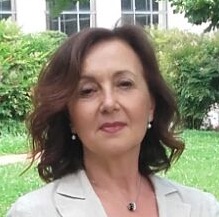Studying at the University of Verona
Here you can find information on the organisational aspects of the Programme, lecture timetables, learning activities and useful contact details for your time at the University, from enrolment to graduation.
Academic calendar
The academic calendar shows the deadlines and scheduled events that are relevant to students, teaching and technical-administrative staff of the University. Public holidays and University closures are also indicated. The academic year normally begins on 1 October each year and ends on 30 September of the following year.
Course calendar
The Academic Calendar sets out the degree programme lecture and exam timetables, as well as the relevant university closure dates..
| Period | From | To |
|---|---|---|
| Sem. 1A | Sep 23, 2019 | Oct 31, 2019 |
| Sem. 1B | Nov 11, 2019 | Jan 11, 2020 |
| Sem. 2A | Feb 17, 2020 | Mar 28, 2020 |
| Sem. 2B | Apr 6, 2020 | May 30, 2020 |
| Session | From | To |
|---|---|---|
| Sessione d'esame invernale | Jan 13, 2020 | Feb 15, 2020 |
| Sessione d'esame estiva | Jun 3, 2020 | Jul 25, 2020 |
| Sessione d'esame autunnale | Aug 24, 2020 | Sep 19, 2020 |
| Session | From | To |
|---|---|---|
| Sessione di laurea estiva | Jul 6, 2020 | Jul 11, 2020 |
| Sessione di laurea autunnale | Nov 2, 2020 | Nov 6, 2020 |
| Sessione di laurea invernale | Apr 7, 2021 | Apr 13, 2021 |
| Period | From | To |
|---|---|---|
| Festa di Ognissanti | Nov 1, 2019 | Nov 1, 2019 |
| Chiusura Ateneo | Nov 2, 2019 | Nov 2, 2019 |
| Festa dell'Immacolata | Dec 8, 2019 | Dec 8, 2019 |
| Vacanze di Natale | Dec 23, 2019 | Jan 6, 2020 |
| Vacanze di Pasqua | Apr 10, 2020 | Apr 14, 2020 |
| Festa della liberazione | Apr 25, 2020 | Apr 25, 2020 |
| Festa del lavoro | May 1, 2020 | May 1, 2020 |
| Sospensione delle lezioni | May 2, 2020 | May 2, 2020 |
| Festa del Santo Patrono | May 21, 2020 | May 21, 2020 |
| Sospensione delle lezioni | May 22, 2020 | May 23, 2020 |
| Festa della Repubblica | Jun 2, 2020 | Jun 2, 2020 |
| Vacanze estive | Aug 10, 2020 | Aug 15, 2020 |
Exam calendar
Exam dates and rounds are managed by the relevant Humanistic Studies Teaching and Student Services Unit.
To view all the exam sessions available, please use the Exam dashboard on ESSE3.
If you forgot your login details or have problems logging in, please contact the relevant IT HelpDesk, or check the login details recovery web page.
Should you have any doubts or questions, please check the Enrollment FAQs
Academic staff
 cristina.bertazzoni@univr.it
cristina.bertazzoni@univr.it
 gregoirebernardjohan.cousin@univr.it
gregoirebernardjohan.cousin@univr.it
 stefania.pontrandolfo@univr.it
stefania.pontrandolfo@univr.it
 marco.ubbiali@univr.it
marco.ubbiali@univr.it
Study Plan
The Study Plan includes all modules, teaching and learning activities that each student will need to undertake during their time at the University.
Please select your Study Plan based on your enrollment year.
1° Year
| Modules | Credits | TAF | SSD |
|---|
2° Year activated in the A.Y. 2020/2021
| Modules | Credits | TAF | SSD |
|---|
Indirect internship for educational consulting
| Modules | Credits | TAF | SSD |
|---|
| Modules | Credits | TAF | SSD |
|---|
Indirect internship for educational consulting
| Modules | Credits | TAF | SSD |
|---|
Legend | Type of training activity (TTA)
TAF (Type of Educational Activity) All courses and activities are classified into different types of educational activities, indicated by a letter.
Epistemology of educative research (2019/2020)
Teaching code
4S008180
Academic staff
Coordinator
Credits
9
Also offered in courses:
- Epistemology of qualitative research of the course Master's degree in Pedagogical Sciences
Language
Italian
Scientific Disciplinary Sector (SSD)
M-PED/01 - PEDAGOGY, THEORIES OF EDUCATION AND SOCIAL EDUCATION
Period
Sem. 2A, Sem. 2B
Learning outcomes
Knowledge and understanding 1. The students should be able to know and understand the essence of the epistemology of the qualitative research in health-care contexts. 2. The students should be able to know and understand the specificity of the qualitative research in its paradigmatic, epistemological, philosophical and methodological aspects. 3. The student must be able to assume the posture of research as a fundamental competence of the pedagogical profession, in order to build heuristic practices capable of understanding the contexts and improving the quality of services. Applying knowledge and understanding 1. The students should be able to project experiences of qualitative research contextualized in educative contexts; 2. The students should be able to create a interconnection between theoretical elements and empirical data. 3. The student must be able to take the results of the research in order to implement the quality of the services
Program
The course will be conducted in an unitary way through the two modules. Contents will be presented through the alternation of frontal lessons and laboratories: in this way it will be possible for students to be engaged in a “community of learning and practice”.
The course will deal with the following themes:
• The principal approach of the qualitative research;
• How to realize a qualitative research in educational contexts;
• The specificity of an educative research;
• The role of educative research for innovation in educational contexts;
• The ethical dimension of the research;
• The analysis of research projects in educational contexts.
PRE-REQUISITES
Students will be requested to have the following pre-requisite:
• the knowledge of paradigms and methods of the research, in particular those that are framed in an ecological paradigm.
DIDACTIC METHODS
During the course the students will be involved in laboratorial activities, so that they will be allowed to practice planning qualitative research experiences. This will allow them to face, in a direct or simulated way, all the epistemological, planning and ethical aspects of the educative research.
Also case studies (taken from the professional context) will be presented to students. Moreover, students will be required to work in team in order to simulate the planning of a qualitative research.
| Author | Title | Publishing house | Year | ISBN | Notes |
|---|---|---|---|---|---|
| Luigina Mortari (a cura di) | MelArete (Volume II). Ricerca e pratica dell'etica delle virtù | Vita e Pensiero | 2019 | ||
| Luigina Mortari; Luca Ghirotto (a cura di) | Metodi per la ricerca educativa | Carocci | 2019 | 978-88-430-9847-7 |
Examination Methods
EVALUATION AND ASSESSMENT
Evaluation will be realized through a written test, with open questions, concerning the texts studied and the practices examined. Students should prove that they:
• Have understood the relevant elements characterizing the qualitative research;
• Are able to present the specificity of educative research, with precision and clarity;
• Are able to critically analyze case studies and experiences.
Tests will be evaluated taking into consideration the correctness of contents, the capacity to communicate in an efficient way and the quality of written composition. Every question will be scored with points, whose total sum will compose the grade expressed in thirtieths.
Because of the Covid-19 emergency, the examiantion procedures for the summer and autumn period are changed: the students are requested to write a text and post it on the Moodle webpage of th course, according to what explained at the following link:
http://www.dsu.univr.it/?ent=avvisoin&cs=490&id=150793&lang=it
Type D and Type F activities
Modules not yet included
Career prospects
Module/Programme news
News for students
There you will find information, resources and services useful during your time at the University (Student’s exam record, your study plan on ESSE3, Distance Learning courses, university email account, office forms, administrative procedures, etc.). You can log into MyUnivr with your GIA login details: only in this way will you be able to receive notification of all the notices from your teachers and your secretariat via email and soon also via the Univr app.
Student mentoring
Graduation
Documents
| Title | Info File |
|---|---|
|
|
pdf, it, 99 KB, 13/10/23 |
|
|
pdf, it, 101 KB, 10/04/24 |
List of theses and work experience proposals
| theses proposals | Research area |
|---|---|
| Psicoanalisi | Psychology - Psychology, Psychoanalysis |
Gestione carriere
Linguistic training CLA
Practical information for students
Documents
| Title | Info File |
|---|---|
|
|
pdf, it, 325 KB, 02/05/23 |
|
|
pdf, it, 212 KB, 02/05/23 |
|
|
pdf, it, 131 KB, 02/05/23 |
Stage e Tirocini
Per le altre attività formative (crediti F) sono previsti 9 cfu (pari a 225 ore) da acquisire solamente attraverso l’attività di tirocinio obbligatoria, a sua volta suddivisa in:
- tirocinio indiretto (1 cfu: 25 ore di frequenza obbligatoria in università per il 75%) in preparazione dell’attività formativa sul campo;
- tirocinio diretto (8 cfu), da svolgersi presso enti convenzionati.
L’ordinamento didattico della LM in Scienze pedagogiche prevede che il tirocinio indiretto a frequenza obbligatoria si svolga in università per il 75% nel secondo anno (1 CFU: 25 ore).
Il tirocinio indiretto consiste in un accompagnamento iniziale delle/degli studenti da parte dei tutor attraverso un percorso di formazione della durata di 25 ore.
La finalità di questo percorso è quella di preparare le/gli studenti alla particolare forma di apprendimento costituita dal tirocinio, dotandoli di conoscenze e strumenti adeguati a osservare, comprendere e rielaborare criticamente l’esperienza di tirocinio nei servizi educativi e ad affrontare il tirocinio negli enti con metodo e consapevolezza.
Il percorso, da attuare in gruppi da 20-25 persone sotto la supervisione di un tutor proveniente dal mondo professionale di educatori e pedagogisti, risponde alle esigenze costantemente espresse sia dalle/dagli studenti stessi sia dalle parti sociali che dai referenti degli enti convenzionati.
Nuove Linee Guida per il tirocinio di Scienze pedagogiche.
- Tutte le informazioni in merito agli stage per futuri studenti sono disponibili alla pagina Stage e tirocini.
- Tutte le informazioni in merito agli stage per studenti iscritti sono pubblicate in MyUnivr - come fare per - stage e tirocini.
- Tutte le informazioni in merito agli stage per le aziende sono disponili alla pagina Stage e tirocini per azienze.


 +390458028159
+390458028159















